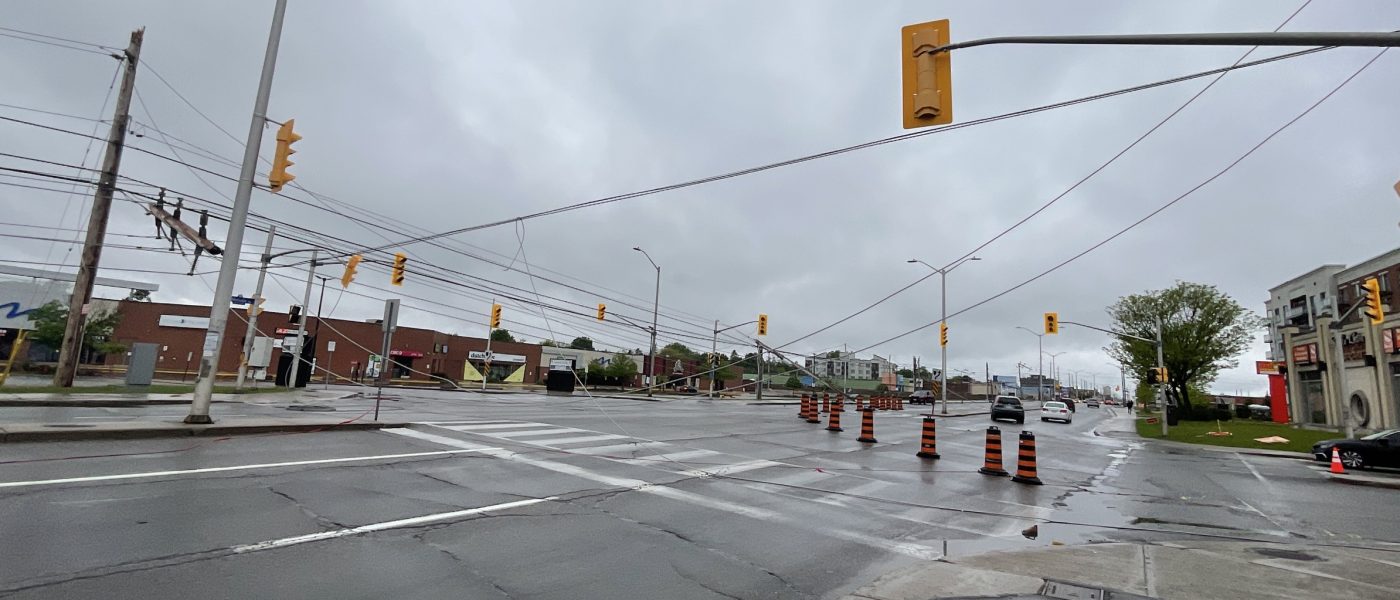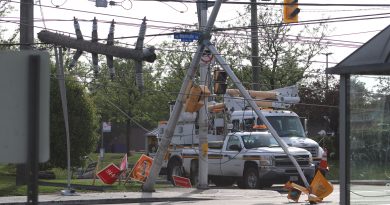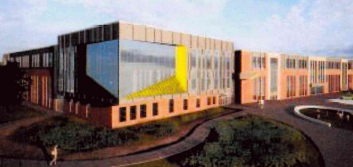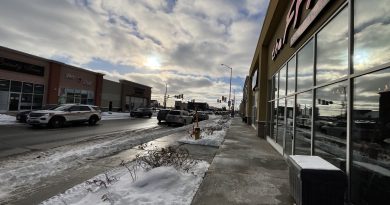Power Won’t Be Restored To Parkwood Hills Tonight
By Charlie Senack, Barrhaven Independent
It’s not good for those who live in the Parkwood Hills neighborhood of Ottawa.
Hydro Ottawa has confirmed that while a bulk of the power grid will be restored by tonight, parts of Ottawa, including in City View, will have to wait a little while longer. More damage was found than initially thought, delaying efforts.
As part of our due diligence efforts, we have also found three specific communities where significant work remains to be done,” said Bryce Conrad, president and CEO of Hydro Ottawa. “We have communicated with the three affected councilors and senior management at the City of Ottawa to ensure that the necessary outreach and support efforts are in place for these three areas. Work in these three communities – Parkwood Hills, a portion of Anderson Road and Bells Corners will be prioritized and crews will be re-deployed as soon as work is finished on the larger system restoration efforts.”
Knoxdale-Merivale councilor Keith Egli has confirmed areas around General Burns and Fisher heights will be impacted. Hydro Ottawa hasn’t given a clear timeline, but says it could be the end of the weekend.
As of Friday morning, 33,000 Hydro Ottawa customers remain without power. Overnight, power was restored to part of the Merivale area, south of Hunt Club and north of Slack Road.
Most of Richmond, Chapman Mills, Crestview, Carlingwood, and Colonnade, among other neighbourhoods, have also had power restored.
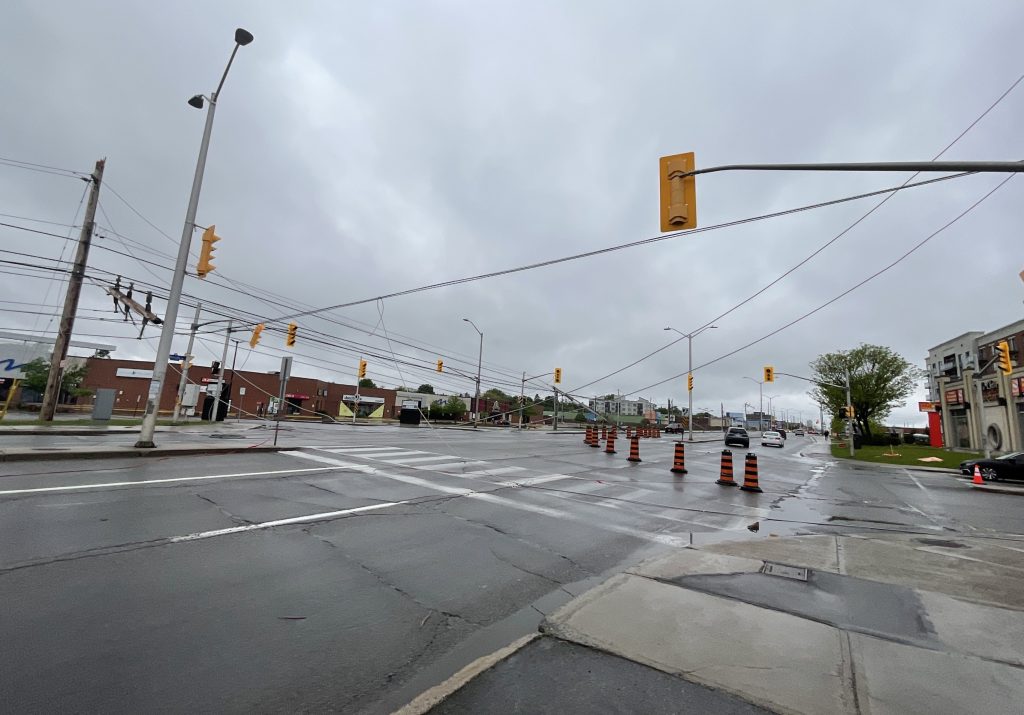
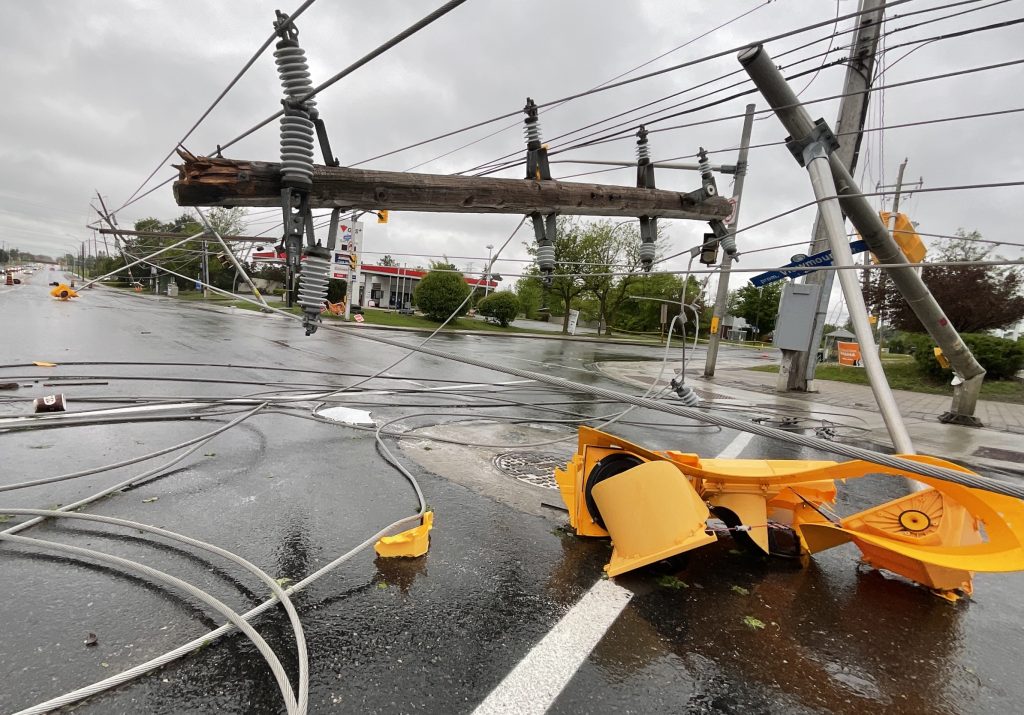
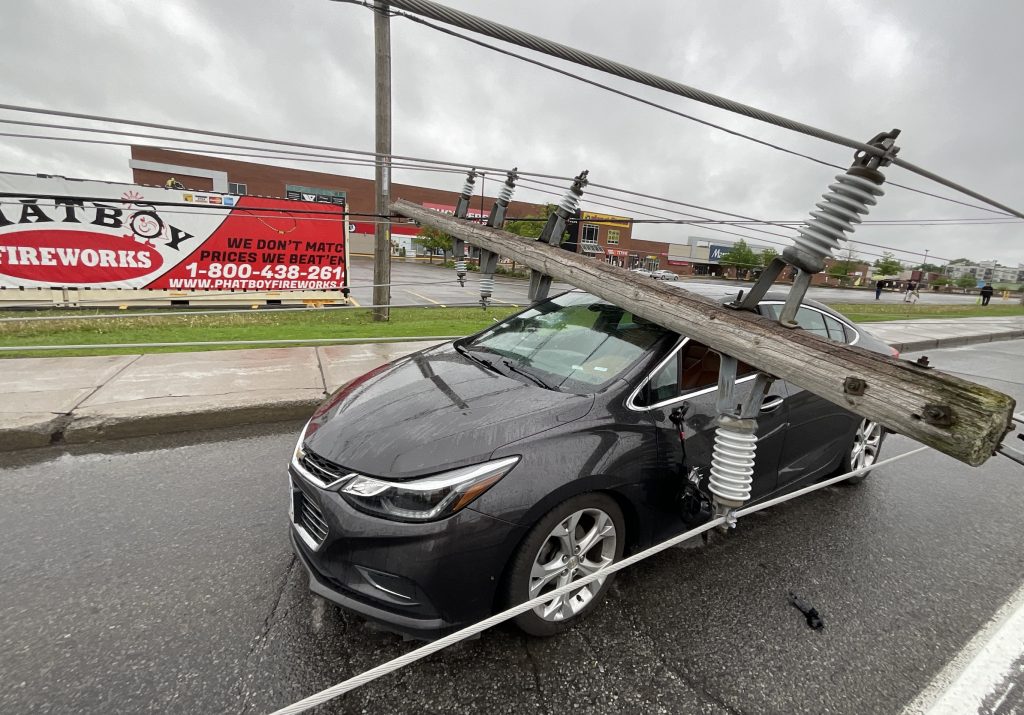
(Charlie Senack Photos)
Hydro Ottawa has said Saturday’s storm, which brought wind gusts of up to 190 kilometres an hour, was worse than the ice storm of 1998, and “four to five times worse” than the tornadoes which touched down in Ottawa in 2018.
At last count, more than 300 hydro poles have toppled over. Hydro Ottawa says that’s more than they replace in a year, saying they now have to do it in just days.
Environment Canada has confirmed the storms were not caused by tornadoes but instead downbursts, also known as a Derecho, a fast-moving and long-lived thunderstorm that causes widespread wind damage.
The storm travelled from Toronto to Ottawa in about three hours, before continuing to Nevada. A Derecho hasn’t been reported in Canada since 1999, but could become more common due to climate change.
It’s believed current seasons and weather made the destruction worse, with many trees just finishing their spring bloom and root systems damp.
“It’s the extremely high winds that we’ve had and most of the impacted areas are basically more of mature communities, where we have larger tree canopy, larger trees,” said Alain Gonthier, general manager of the city’s public works department.
The trees as a result became top heavy, making it easier for them to tumble.
“Had this storm hit a month or a month and a half ago when we had fewer leaves on the trees, the impacts may have been less,” stated Gonthier. “But a lot of trees were really starting to get their foliage. That creates a lot more pressure.”

